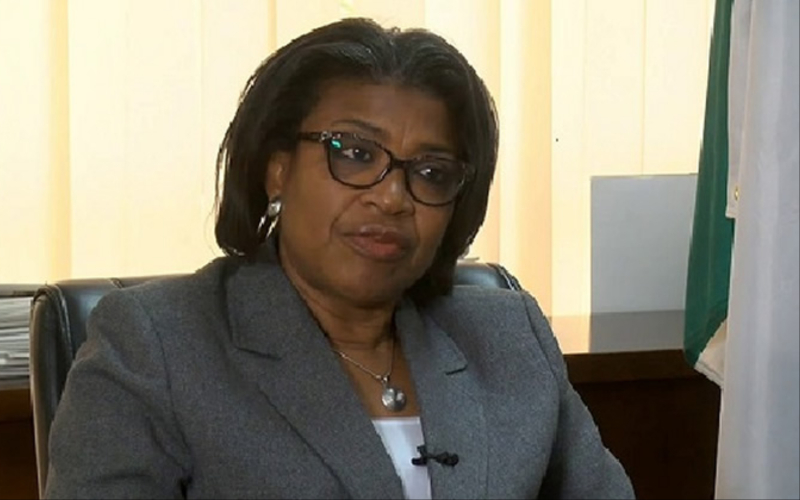The repayments of principal to service the loans from the Central Bank of Nigeria through the Ways and Means Advances will begin in four years, Saturday PUNCH has learnt.
This was according to a disclosure by the Debt Management Office on the Securitization of the N22.7tn Ways and Means Advances.
In a Frequently Asked Questions statement by the DMO, it was disclosed that the loan approved by the National Assembly would be for a tenor of 40 years with an interest rate of nine per cent per annum.
It was also disclosed that there would be a moratorium on payment of principal for about three years.
The DMO noted that “The Securities will be issued to the Central Bank of Nigeria by the Federal Government of Nigeria.
“The Securities will not be issued to the public by the FGN to raise funds.”
The debt office also listed some benefits of securitization, saying that it would lead to debt transparency and reduce the debt service cost.
It said, “It will reduce the Debt Service Cost as the new Interest Rate is 9% p.a. compared to the Monetary Policy Rate plus three per cent which translates to 21.0 per cent p.a. (MPR – 18.0 per cent + 3 per cent) currently being charged on the Ways and Means Advances.
“The large savings arising from the much lower Interest Rate will help reduce the deficit in the Budget and expectedly, the level of New Borrowings.”
On the repayment, it noted that the Federal Government will begin repayment of interest this year while that of principal will begin in four years.
The debt office said, “Provisions for Interest on the securitized Ways and Means Advances (starting from 2023) and principal repayments starting from year four, will be made in the Annual FGN Budgets.”
The DMO also noted that the securitization of the Ways and Means Advances does not involve new money being given to the Federal Government as the CBN had already provided the funds to the government.
It added that based on statutory provisions, the approval of the Senate and the House of Representatives are required for the securitization, noting that the implementation will be upon receipt of the approval of the House of Representatives.
Both the Senate and the House of Representatives have approved the request of the President, Major General Muhammadu Buhari (retd) to restructure the N22.7tn Ways and Means Advances.
The PUNCH earlier reported that the Federal Government plans to spend N1.2tn on servicing the loans it got from the CBN through the Ways and Means Advances.
The 2023 fiscal framework document obtained by our correspondent showed that the Federal Government allocated N6.31tn to service its total debts.
A breakdown showed that the Federal Government allocated approximately N3.3tn to service domestic debts, N1.81tn for foreign debts and N1.2tn for ways and means.
The document also showed that this was the first time the Federal Government was making a budgetary allocation for ways and means.
The PUNCH had also reported that the Federal Government paid interests of N4.12tn between 2019 and 2022 on its borrowings from the CBN.
Ways and Means Advances is a loan facility used by the central bank to finance the government in periods of temporary budget shortfalls subject to limits imposed by law.
According to Section 38 of the CBN Act, 2007, the apex bank may grant temporary advances to the Federal Government with regard to temporary deficiency of budget revenue at such rate of interest as the bank may determine.
The Act read in part, “The total amount of such advances outstanding shall not at any time exceed five per cent of the previous year’s actual revenue of the Federal Government.
“All advances shall be repaid as soon as possible and shall, in any event, be repayable by the end of the Federal Government financial year in which they are granted and if such advances remain unpaid at the end of the year, the power of the bank to grant such further advances in any subsequent year shall not be exercisable, unless the outstanding advances have been repaid.”
However, the CBN has said on its website that the Federal Government’s borrowing from it through the Ways and Means Advances could adversely affect the bank’s monetary policy to the detriment of domestic prices and exchange rates.
“The direct consequence of central banks’ financing of deficits are distortions or surges in the monetary base leading to adverse effects on domestic prices and exchange rates i.e. macroeconomic instability because of excess liquidity that has been injected into the economy,” it said.
The World Bank had, in November 2021, warned the Nigerian government against financing deficits by borrowing from the CBN through the Ways and Means Advances, saying this put fiscal pressure on the country’s expenditures.
The World Bank also projected that interest payments on the Federal Government’s borrowing from the CBN would gulp about 62 per cent of government revenue by 2027 despite the restructuring plan.
SOURCE: THE PUNCH











